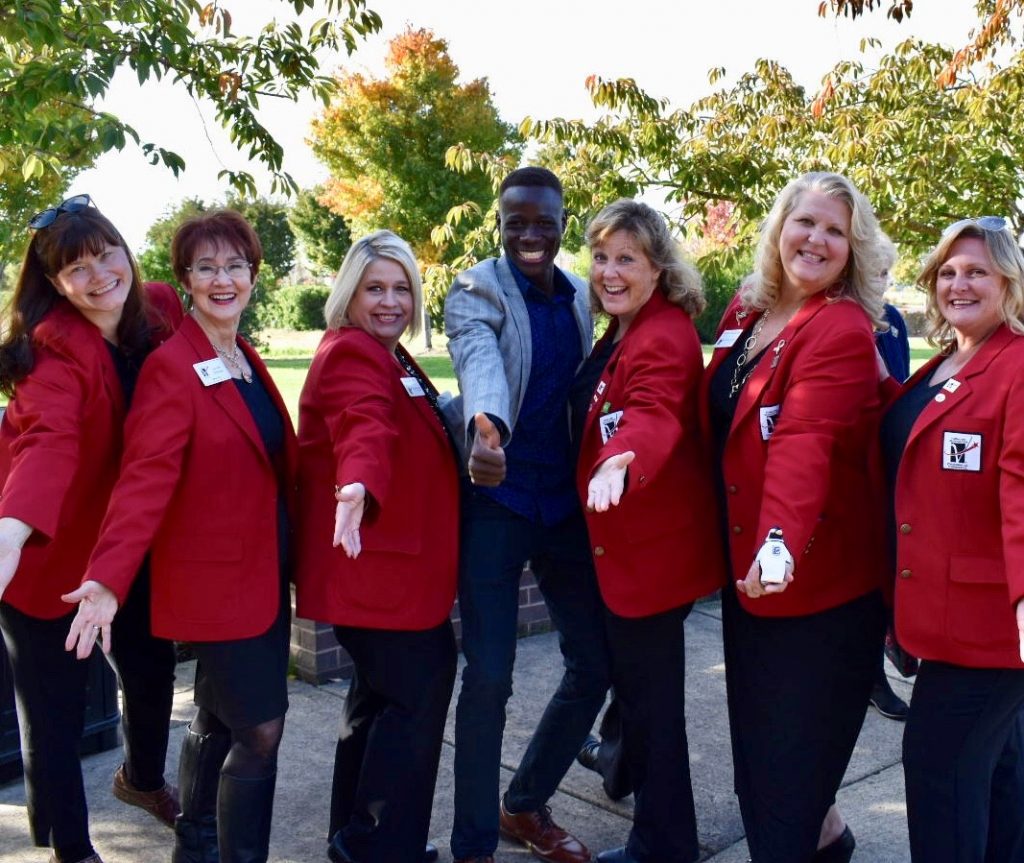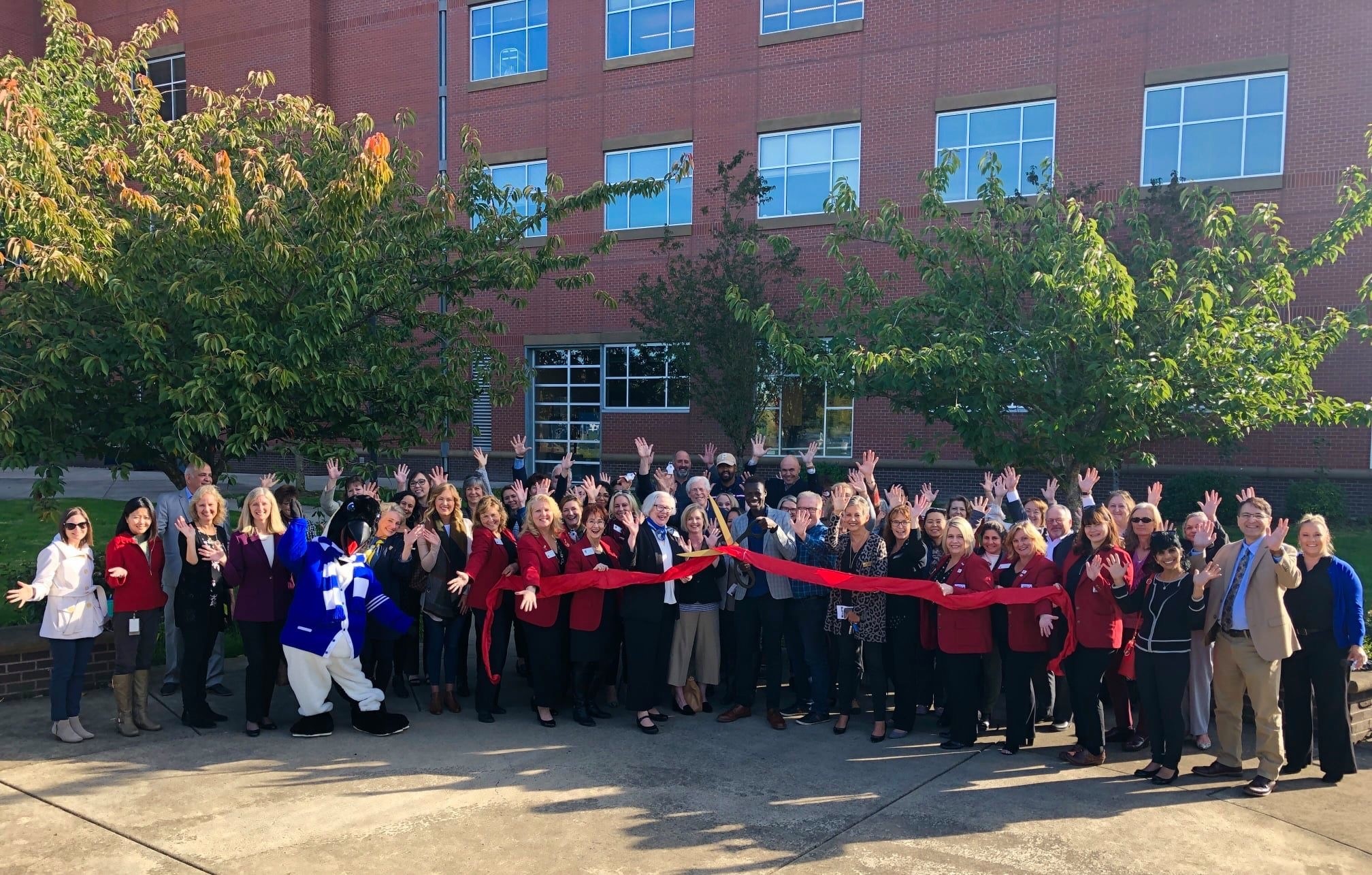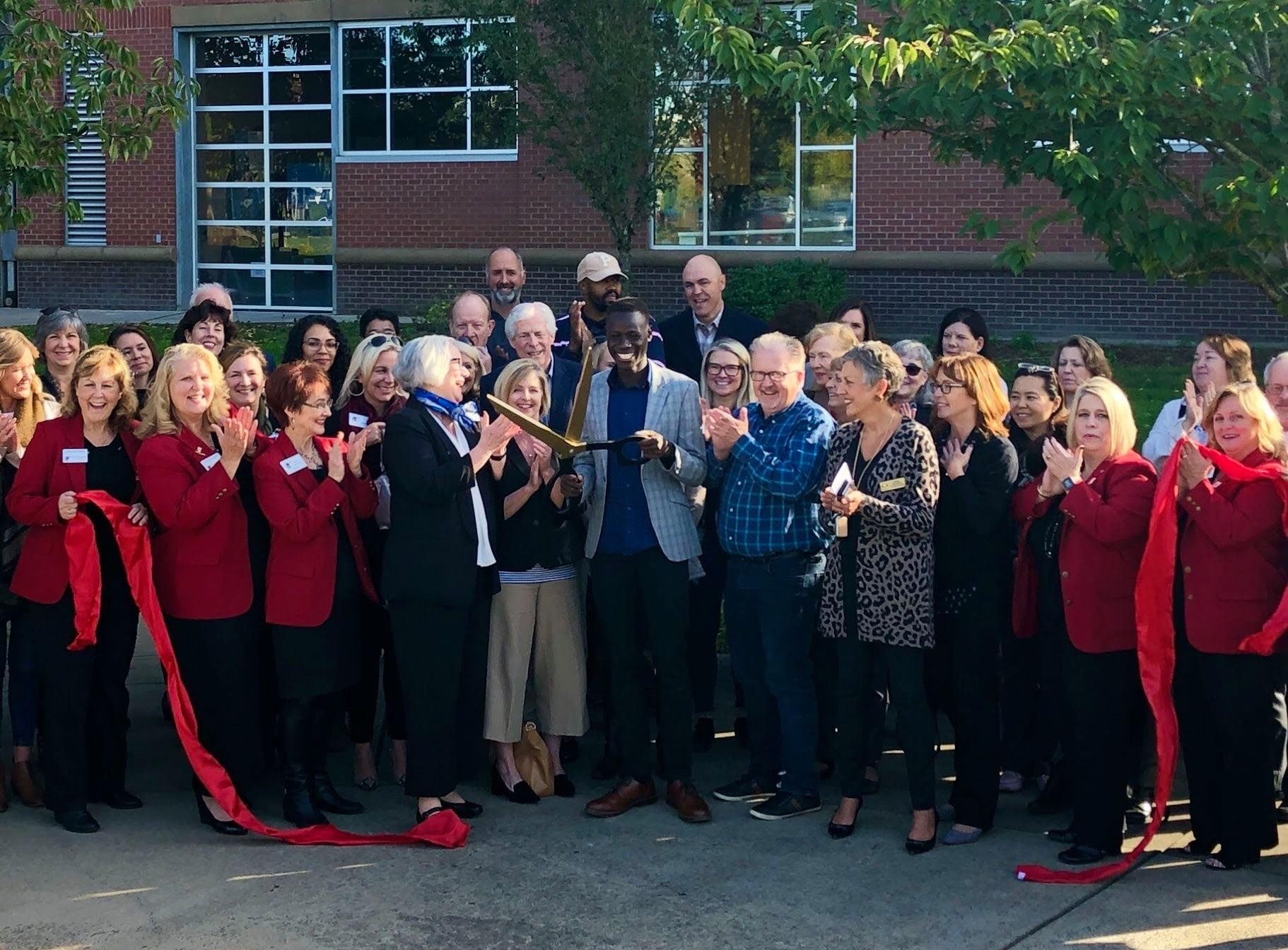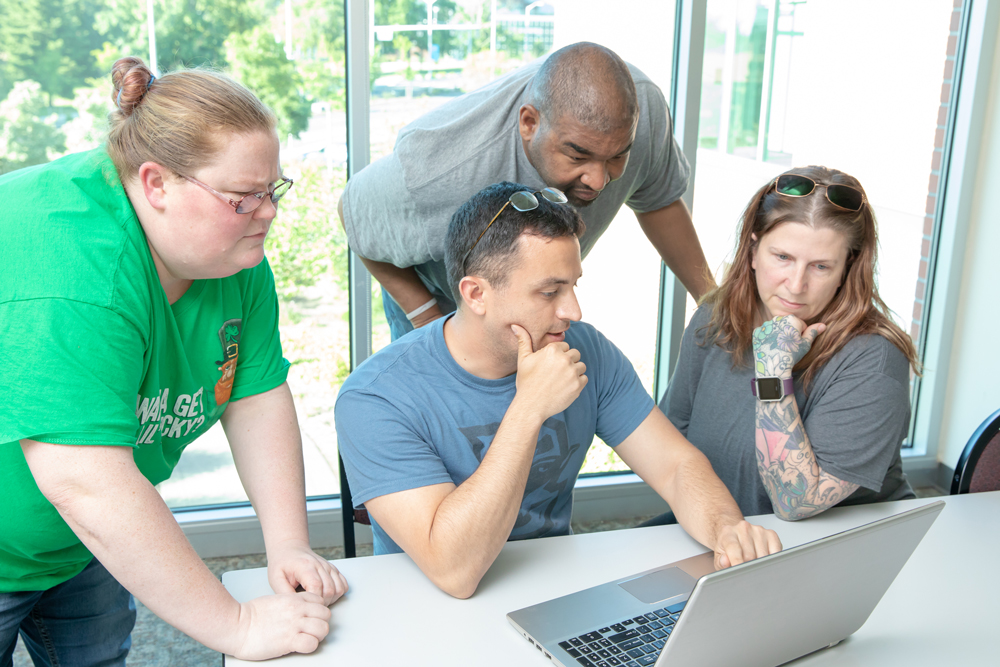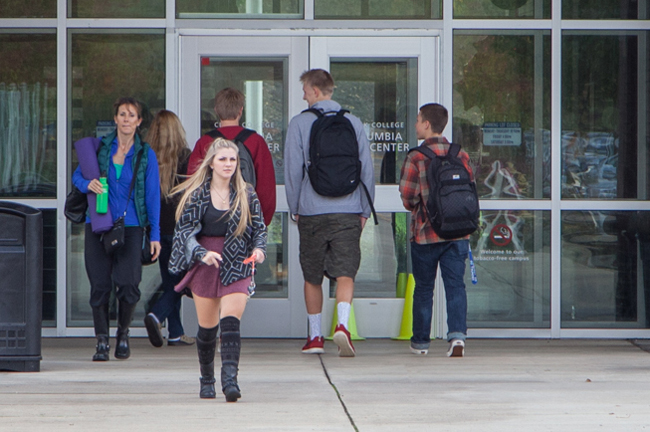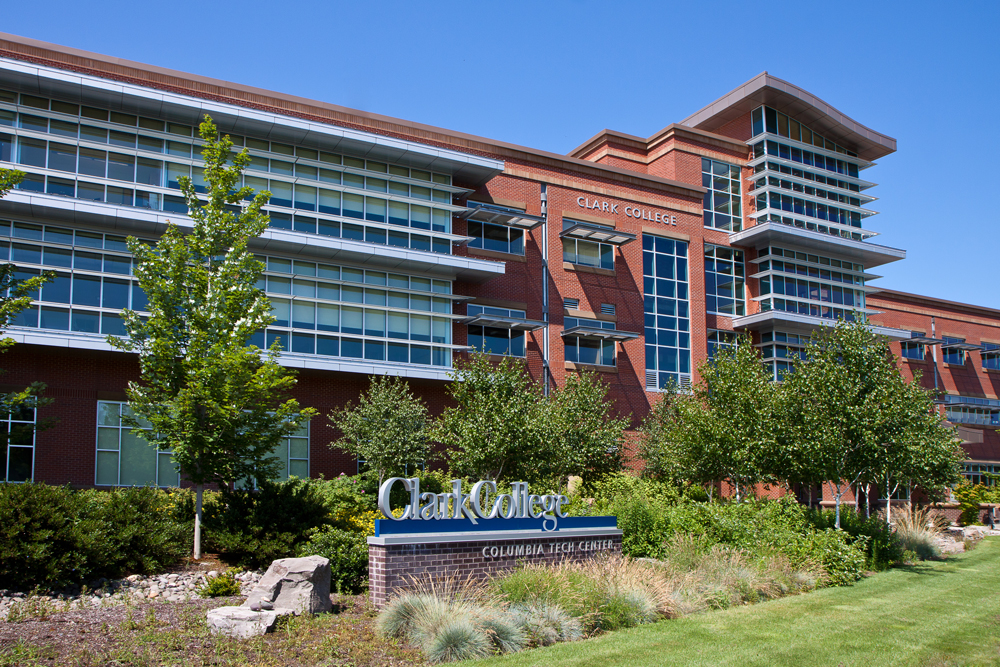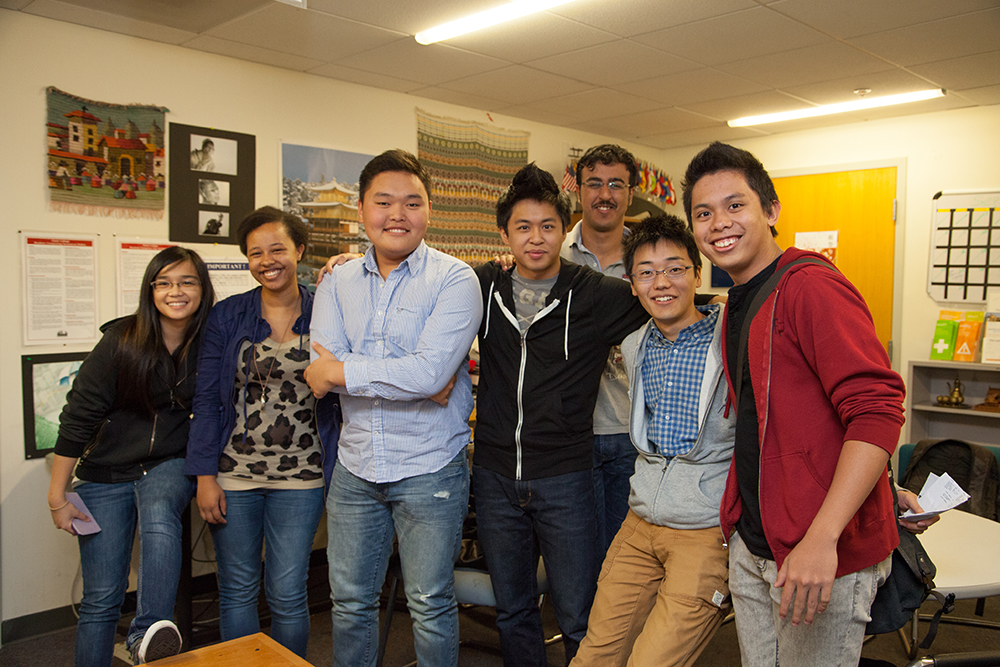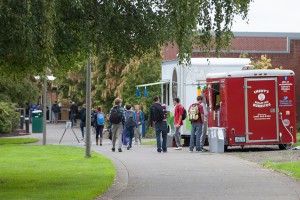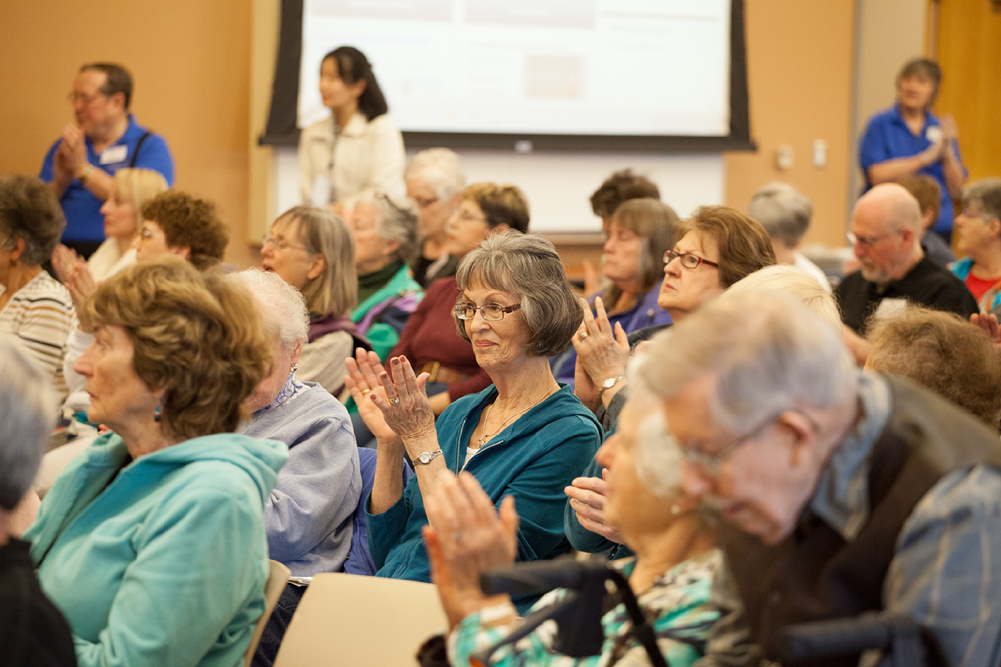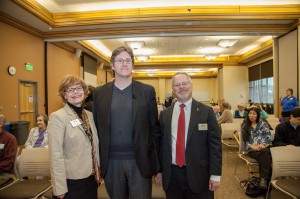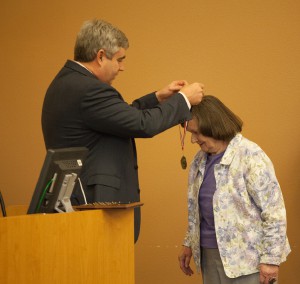Clark College celebrates ten years at Columbia Tech
Business and community leaders joined Clark College on Monday, October 14 for a Vancouver Chamber of Commerce ribbon cutting to celebrate a milestone. Clark College first opened Columbia Tech Center in east Clark County in fall 2009.
Responding to feedback from employers and residents in East Vancouver, the college refreshed its offerings at Columbia Tech Center to be a hub for business and technical education.
“Columbia Tech Center is today a bustling campus on the east side with a wide range of programs available to our students. We are grateful for the community’s support over the years and renew our commitment to serving the community in a way that best meets their needs.”
Clark College Interim President Sandra Fowler-Hill
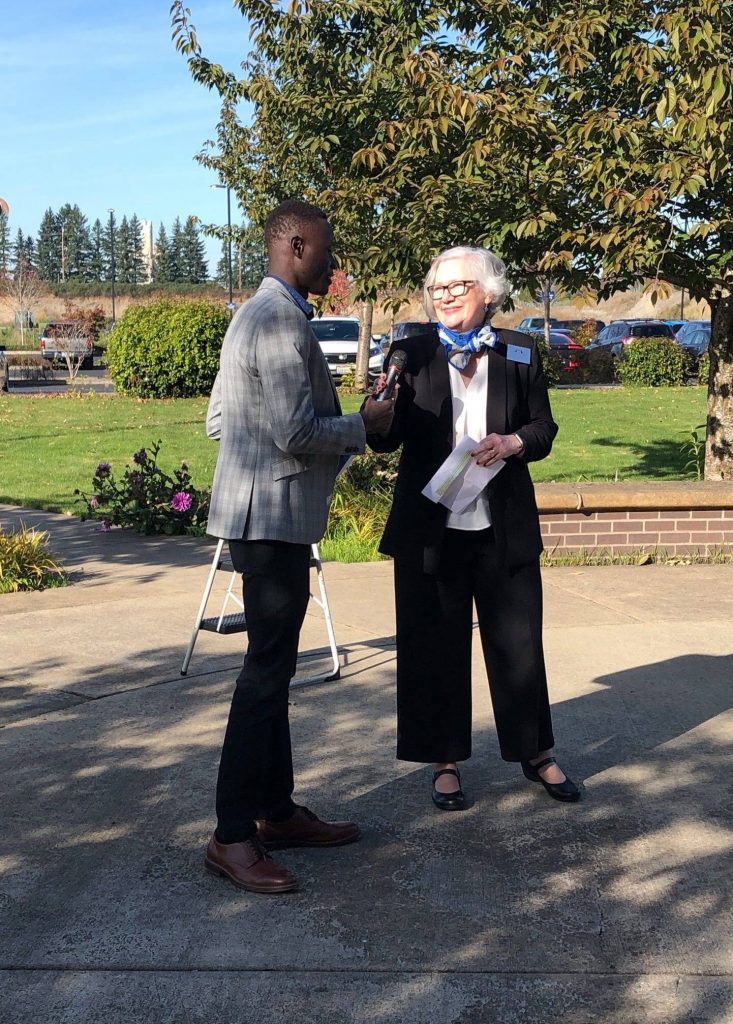
The
college has worked to create a series of course offerings this fall that will
allow students to pursue career-oriented higher education in subjects that
include business, information technology, computer support, and project management—all
without having to travel to the college’s main campus near downtown Vancouver.
Most classes are scheduled to run just two days a week (Tuesday and Thursday),
allowing students to plan their studies around work and/or life obligations.
We are committed to offering business classes at Columbia Tech to provide our students viable pathways forward to earning the new skills that they need to be successful–whether that be a single course, a certificate or a degree.”
Professor Adnan Hamideh, Division Chair, Clark College Business Administration Department
Hamideh is also preparing to create a business degree path for office administration, he said. The school already offers accounting, marketing, management and business administration. About 7,000 full-time students take business classes at Clark College he said.
Additionally, Clark College Economic and Community Development, which provides non-credit continuing education and customized training, has relocated to the Columbia Tech Center location.
Last month, ECD moved its business classes from a leased space in downtown Vancouver to the Columbia Tech Center, said Kevin Witte, vice president of the program. The move was in part a way to help the college save money, but it also moved students closer to some of the city’s larger employers, including WaferTech.
Witte said participating employers include Boeing Co, and they request specific skills for students to learn, which the college incorporates into its training.

Clark College Columbia Tech Center
Business and community leaders toured the college’s nationally recognized Mechatronics lab. The engineering program focuses on both electrical and mechanical systems. It is a foundational training program for advanced manufacturing. Graduates earn an average of $88,000 as mechatronics engineers and 100 percent of Clark’s graduates are finding jobs in their chosen field.
The college has also expanded the range of class offerings serving Running Start students, a popular state program that allows high school students to earn college credit, tuition-free, while still in high school. The expanded offerings provide more opportunities for families with children attending high schools in the eastern portion of the college’s service district, which covers Camas, Washougal, and parts of the Columbia Gorge.
ASCC President Evans Kaame spoke to the business leaders and elected officials thanking them for their support of Clark College students over the years.
“Because you care, students at Clark have opportunities to succeed. Our students are better prepared to go out and do great things.”
ASCC President Evans Kaame
